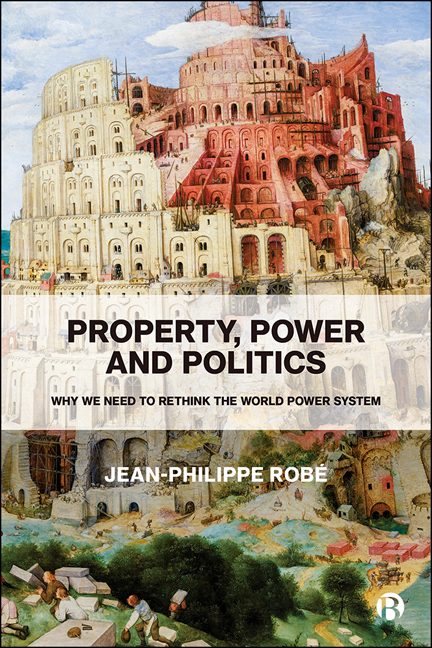4 - From Political Enterprise to the Modern State
Published online by Cambridge University Press: 12 March 2021
Summary
So far in the first part of this book, I have addressed the notion of property as being primarily a legal notion, giving the owner a right of decisionmaking as a matter of principle towards the object of property. Modern property is part of a constitutional mode of government, being part of the rights of autonomy enabling private persons to autonomously conduct their lives. Public prerogatives are performed by Organs of the State, via procedures which are radically different from the rights of autonomy attached to private property. Private property rights are a specific mode of decentralization of sovereignty.
The present chapter explains how the State evolved from being merely a type of political enterprise to the institution it is today. It is an alternative explanation to the movement from a ‘natural state’ to an ‘open order society’ as it is explained by North, Wallis and Weingast. In its origins, the State was nothing more than a coalition of powerful individuals, mostly men controlling a territory via the use of physical violence if necessary. Property rights in the modern sense hardly existed at this stage of institutional development. Accessorily, violent coalitions of political entrepreneurs provided a service to the population: a form of order against defeated rivals, internal or external. With its successes, the political enterprise will augment this service, extending its jurisdiction and effective control over competing forces. It will both facilitate and benefit from the progressive development of market exchange. As we will see, the modern State is intrinsically linked to modern taxes, payable in money and not in kind. Via a very long process, the resources needed by States to provide the services they deliver will be extracted via taxation and not mere compulsion in the context of the development of a monetary economy developed in part thanks to State action. States developed an inherent interest in protecting property rights and facilitating monetary exchange as a means to gain access to more resources via the taxation of a monetary economy.
- Type
- Chapter
- Information
- Property, Power and PoliticsWhy We Need to Rethink the World Power System, pp. 137 - 162Publisher: Bristol University PressPrint publication year: 2020



